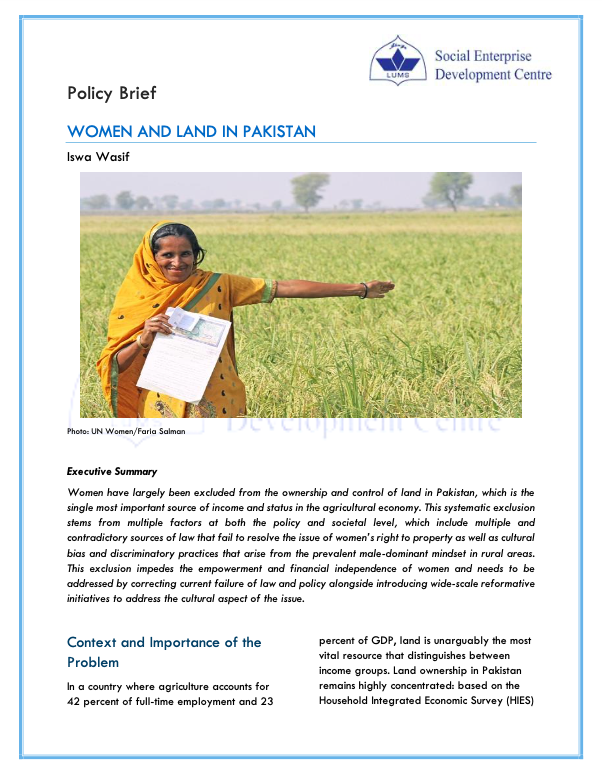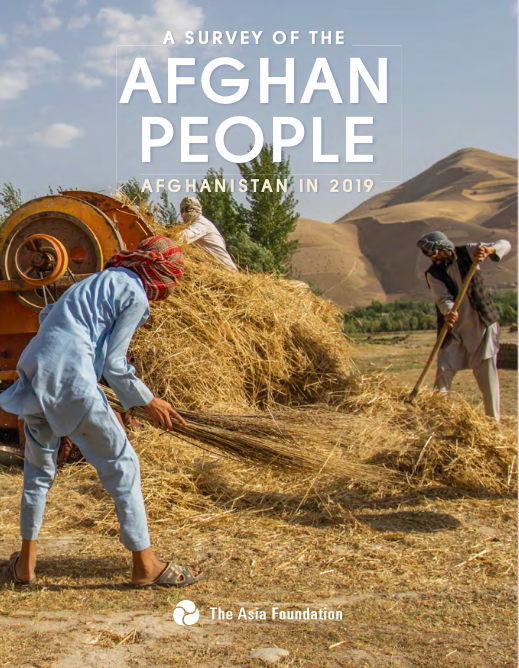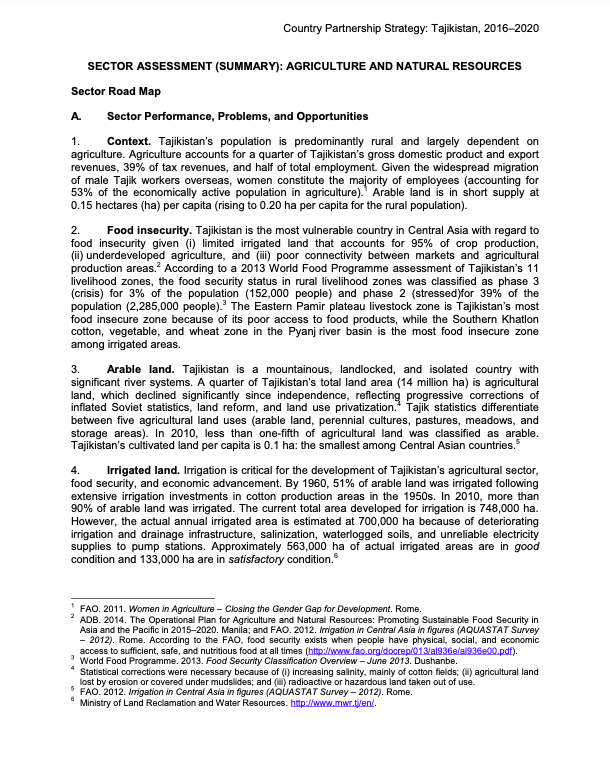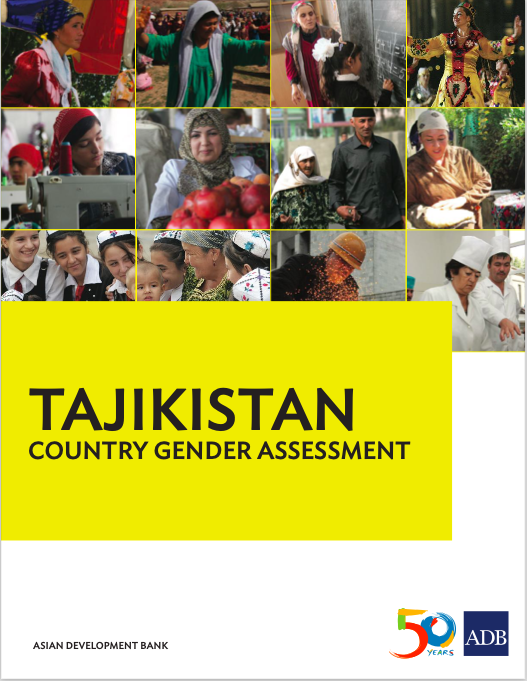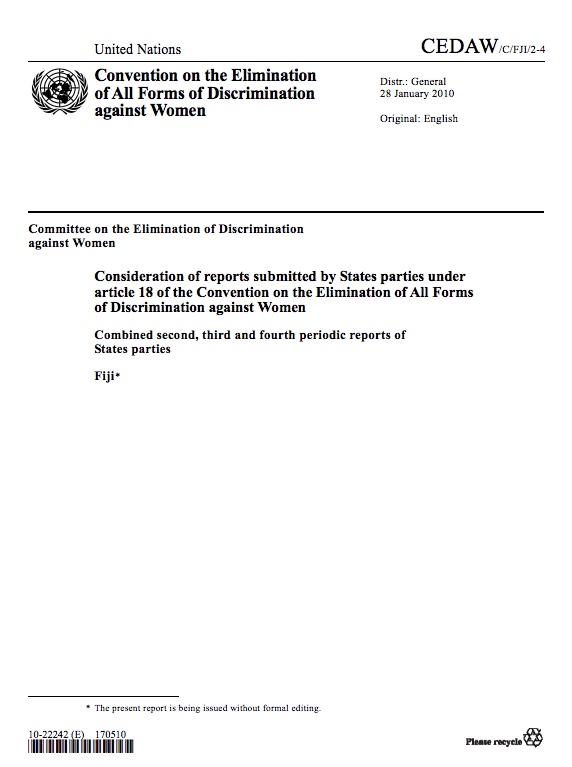Women and Land in Pakistan
Women have largely been excluded from the ownership and control of land in Pakistan, which is the single most important source of income and status in the agricultural economy. This systematic exclusion stems from multiple factors at both the policy and societal level, which include multiple and contradictory sources of law that fail to resolve the issue of women’s right to property as well as cultural bias and discriminatory practices that arise from the prevalent male-dominant mindset in rural areas.

